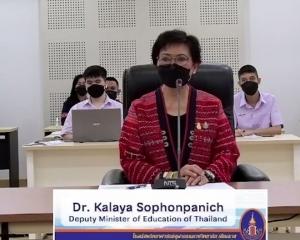
As the tired, acrimonious dance of teacher pay negotiations plays out it may be worth revisiting some embedded views.
One is that it is not possible to measure teacher performance. I disagree. I have always felt it is broadly possible to categorise the classroom performance of individual teachers as either outstanding, good, adequate or inadequate.
The real issues are determining what to measure and how to measure it and who measures it. The key constraint is the time and effort required to obtain reasonably objective data and observations about individual teacher performance.
In the prehistoric days there were school inspectors whose job was to observe individual teachers and pass judgement on their suitability for advancement. They also had a more subtle role of sharing best practice and giving professional guidance. This was abolished decades ago. The task of teacher appraisal was then thrown on schools. The Education Review Office (ERO) judges the overall school performance not individual teachers - a losing battle for those schools which struggle to attract good teachers.
But the current incentive structure for individual teachers is sad. For a start, there is little extra time or remuneration given to a supervisory teacher to collect objective data. If a teacher is inadequate in their performance then a derogatory appraisal leads to a disaffected sullen staff member. If a teacher is outstanding in their role there is no immediate return. Just a pat on the back and the likelihood of larger classes and more responsibility next year.
Performance pay has been a toxic subject for teachers because it has been so poorly discussed. There is a fear it will destroy co-operation and lead to a loss of collegiality, which is vital to the job. Yet it need not be so. There is also a justifiable concern about the objectivity of school management in appraising teachers. An inadequate teacher who is a top netball or rugby coach may trump an outstanding geography teacher. It needs to be clearly defined what is to be measured in teaching. So the current system limps along in a very substandard fashion. Great teachers are either promoted out of the classroom or often leave when they are at their most productive. Shoddily conceived initiatives such as ``Communities of Learning'' are used by principals to reward their selected favourites in a de facto system of merit pay.
The unions, particularly under a leftish government, attempt to flex their muscle and regain lost ground in pay and conditions. They are losing the battle and public goodwill along the way. New thinking is needed. Or at least the revisiting of old ideas.
Many teachers are at the top of the pay scale. The introduction of a significant pay increment for ``expert teachers'' could be a solution. Teachers who feel they qualify could apply for external appraisal to become an expert teacher.
This is not a new idea. It has been floated several times before. They would be appraised over a period by an outside party. The appraisers could eventually be other expert teachers. The title of expert teacher would attract significant extra remuneration and professional status. It would also be limited in tenure.
Such a career path would also remove the necessity of excellent teachers having to move into management to gain significant pay increases. It would also remove some of the risks of nepotism and favouritism in the current system of internal teacher appraisals. Expert teachers could also be seconded to schools that are struggling to perform. This approach has been used very effectively in parts of Canada.
At present, poorly performing schools attract a negative ERO report, which compounds their woes. There are few mechanisms for remedial assistance. Having access to top teachers who are paid for their expertise would be a win-win. Expert teachers could also be freed up to provide mentoring roles in their own schools.
Teacher appraisal can never be an exact science. But the current system of teacher appraisal is time consuming for all involved with little tangible outcome except the risk of acrimonious disagreement. It is neither particularly objective nor empowering. At a national level the periodic outbreaks of industrial disputes just serve to erode public goodwill and teacher status. Poor teachers who fail to improve need to be encouraged to leave the job. Good teachers need to be encouraged to stay in the classroom and be remunerated accordingly.
Peter Lyons teaches economics at Saint Peter's College in Epsom and has written several economics texts.











